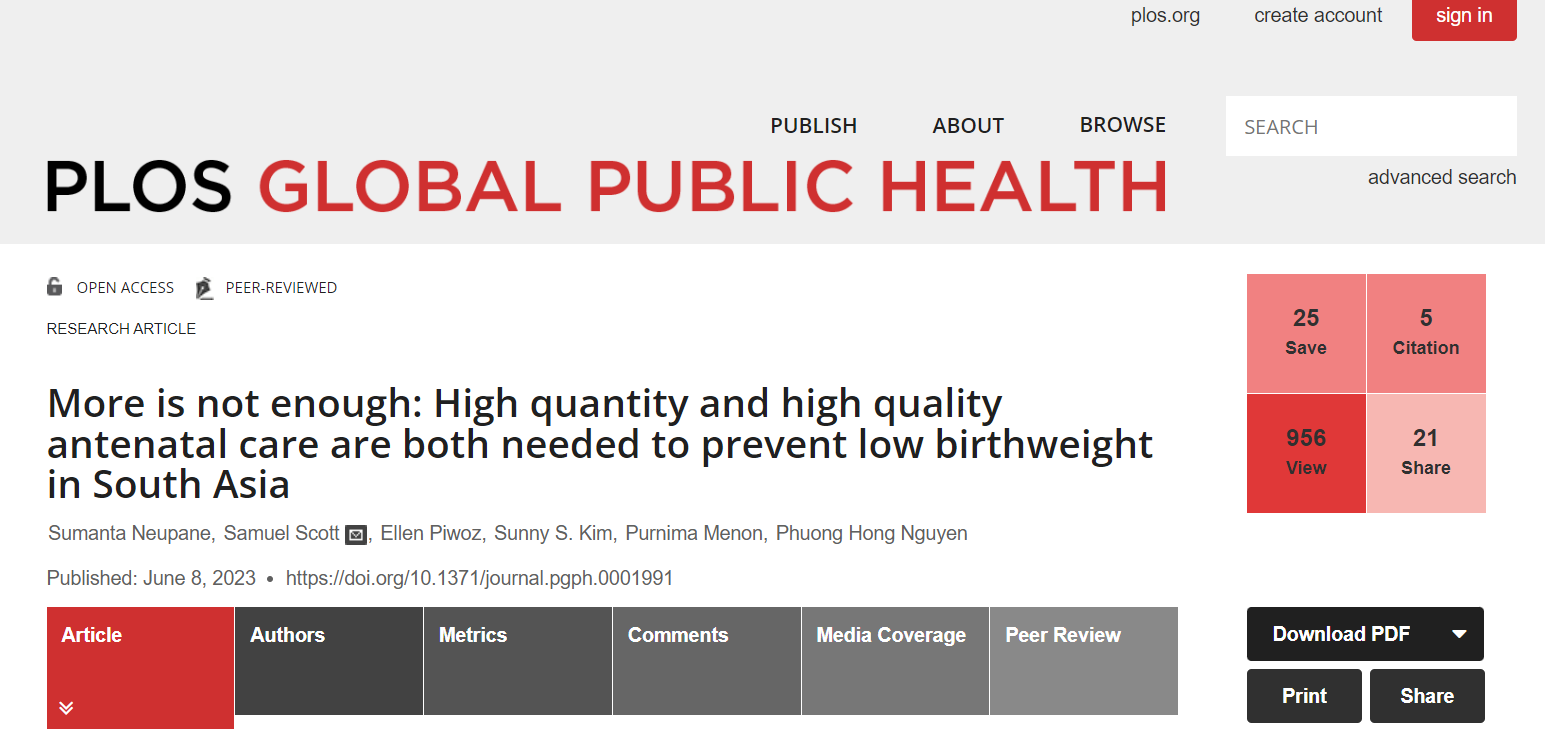Journal Article | https://journals.plos.org/globalpublichealth/article?id=10.1371/journal.pgph.0001991
Date of Publication | June 2023
Abstract
Antenatal care (ANC) is an opportunity to receive interventions that can prevent low birth weight (LBW). We sought to 1) estimate LBW prevalence and burden in South Asia, 2) describe the number of ANC visits (quantity) and interventions received (quality), and 3) explore associations between ANC quantity, quality and LBW. We used Demographic and Health Survey (DHS) data from Afghanistan (2015), Bangladesh (2018), India (2016), Nepal (2016), Pakistan (2018) and Sri Lanka (2016) (n = 146,284 children <5y). Women were categorized as follows: 1) low quantity (<4 ANC visits) and low quality (<5 of 10 interventions received during ANC), 2) low quantity and high quality (≥5 of 10 interventions), 3) high quantity (≥4 visits) and low quality, 4) high quantity and high quality. We used fixed effect logistic regressions to examine associations between ANC quality/quantity and LBW (<2500 grams). LBW prevalence was highest in Pakistan (23%) and India (18%), with India accounting for two-thirds of the regional burden. Only 8% of women in Afghanistan received high quantity and high quality ANC, compared to 42–46% in Bangladesh, India, and Pakistan, 65% in Nepal and 92% in Sri Lanka. Compared to the low quantity/quality reference group, children of women with high quantity/quality ANC had lower odds of LBW in India (Adjusted Odds Ratio 0.84, 95% CI 0.78–0.89), Nepal (0.57, 0.35–0.94), Pakistan (0.45, 0.23–0.86), and Sri Lanka (0.73, 0.57–0.92). Low quantity but high quality ANC was protective in India (0.90, 0.84–0.96), Afghanistan (0.53, 0.27–1.05) and Pakistan (0.49, 0.23–1.05). High quantity but low quality ANC was protective in Sri Lanka (0.76, 0.61–0.93). Neither frequent ANC without appropriate interventions nor infrequent ANC with appropriate interventions are sufficient to prevent LBW in most South Asian countries, though quality may be more important than quantity. Consistent measurement of interventions during ANC is needed.

